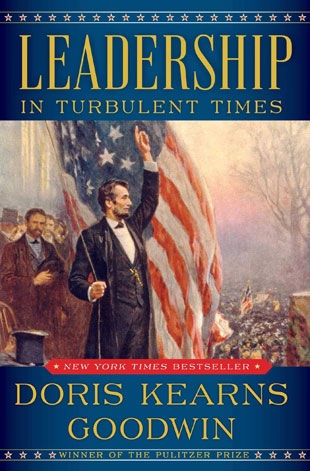2018 was a year for books on leadership, a topic that swings between the actions of Presidents and CEOs, the musings of the Tao Te Ching and those who take command on the battlefield. The call for fresh forms of leadership is one of the keynotes of these times. One of the most eagerly awaited is this extraordinary book by Pulitzer Prize winning historian Doris Kearns Goodwin.
She focuses on the lives of four American presidents: Abraham Lincoln, Theodore Roosevelt, Franklin Roosevelt, and Lyndon Johnson. Although she has already done studies of these leaders' accomplishments, this time she emphasizes their character qualities and the skills they marshalled while in office. Possessing different personalities, they shared persistence, uncommon intelligence, and a love of storytelling.
In the first three chapters, Goodwin discusses their early years. She moves on to look at the major challenges they faced as young politicians, and then sums up the high marks of their presidencies: Abraham Lincoln's Emancipation Proclamation, Theodore Roosevelt's handling of the Great Coal Strike of 1902, Franklin Roosevelt's monumental New Deal, and Lyndon Johnson's civil rights legislation.
The last section in this enlightening work covers the four leadership styles: the transformational leadership of Lincoln, the crisis management of Theodore Roosevelt, the turnaround leadership of Franklin Roosevelt, and the visionary leadership of Lyndon Johnson.
Nodding to the contemporary interest in takeaways from articles and books, Goodwin sprinkles bold-faced leadership aphorisms throughout her analysis of different styles. Here are some of them:
- Find time and space in which to think.
- Set a standard of mutual respect and dignity; control anger.
- Maintain perspective in the face of both accolades and abuse.
- Keep your word.
- Put ambition for the collective interest above self-interest.
- Use history to provide perspective.
- Find ways to relieve stress.
- Bring all stakeholders aboard.
- Stimulate competition and debate. Encourage creativity.
- Lead with your strengths.
- Set forth a compelling picture of the future.
